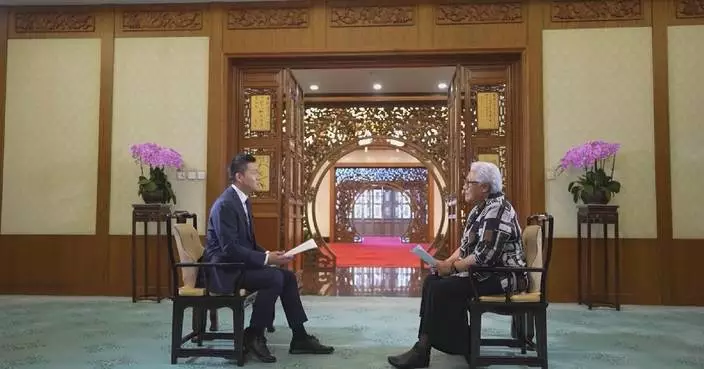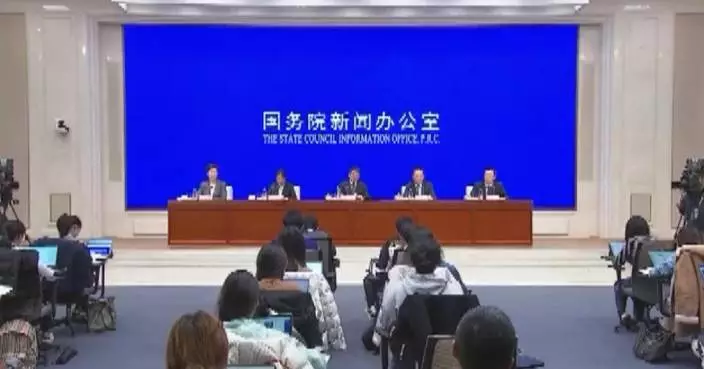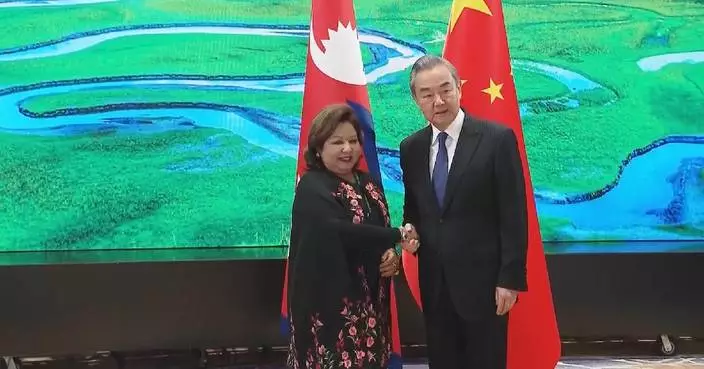China has made much more progress at a much faster speed in transformative areas thanks to the reform approach taken by the Chinese government to achieve efficient and appropriate governance, said Samoan Prime Minister Fiame Naomi Mata'afa in an interview in Beijing on Wednesday.
Mata'afa just wrapped up her sixth visit to China from Nov 20 to 28. During the latest trip, she visited eight cities in China, including Taizhou City in east China's Jiangsu Province, the cities of Shenzhen and Huizhou in south China's Guangdong Province, and Beijing.
In an interview with the China Media Group, she said she has been deeply impressed by China's achievements in renewable energy and information technology, and the government's reform mindset and measures.
"What is notable always with China is the pace at which it changes. My main takeaway as a leader with a sort of a broad overview is that internationally there are two key platforms for development. Energy being one of them, especially the renewable energy. And secondly is the whole digital and information technologies. These are the transformative platforms, of which many countries now are premising their development. It's the new way of work. So everyone is very much on board. But you see in China, how much more they're doing, how much faster they are responding. From a government perspective, what I'm really appreciating is the reform approach, being always mindful, given the information flow of what government needs to do, how it can respond. But what strikes me is a mindset of wanting to be right on top of that information and reconfiguring how government works to more efficiently and appropriately respond to the needs, whether they be internal or external. So, that has been one of my major takeaways," Mata'afa said.
Mata'afa officially started her nine-day visit in Taizhou, where she visited the Taizhou Polytechnic College and a green energy company. She spoke highly of China's investments in education, saying it helps not only with Chinese modernization, but also with the preservation of traditional Chinese culture.
"We were taken to a centralized data center, where the information is coming in to better advise the administrations on how to respond. You mentioned the students. Once again, it's a level of investment. What I noticed was a very broad scope of learning, not just academia, but also cultural elements, value elements. It's good to see. On one side, it seems very modern, right? In terms of aspiration, abilities and what has been able to be achieved. But on the other side, to be very careful to preserve principles and values of Chinese culture," Mata'afa said.
In Shenzhen, Mata'afa visited the Futian Mangrove National Nature Reserve. As a leader who prioritizes the protection of mangrove in the Pacific island nation, she said the nature reserve has provided an advanced and inspiring approach that focuses on the ecosystem as a whole, rather than just mangrove.
"What I saw was much more advanced, right? Progress in the management of mangroves. It has to do with resources, of course. But what I particularly enjoyed, and I don't think we have paid as much attention in terms of our mangrove work, is providing the environment for the other animals, the birds, the fishes and so forth. We're more still at the point where we just want to ensure that we don't lose the mangrove. But the further development that has been done at that center, really it's become a refuge or a place where the animal life can thrive. We see a bit of it in Samoa, but it's not being done intentionally. We just try and ensure that we don't lose the mangrove in the first instance. But I think our planning needs to be a lot more extended about the ecosystem that is supported by our mangroves. That's a huge project. And it's a great demonstration of what can be done with our mangroves, and the benefits that it derives," Mata'afa said.
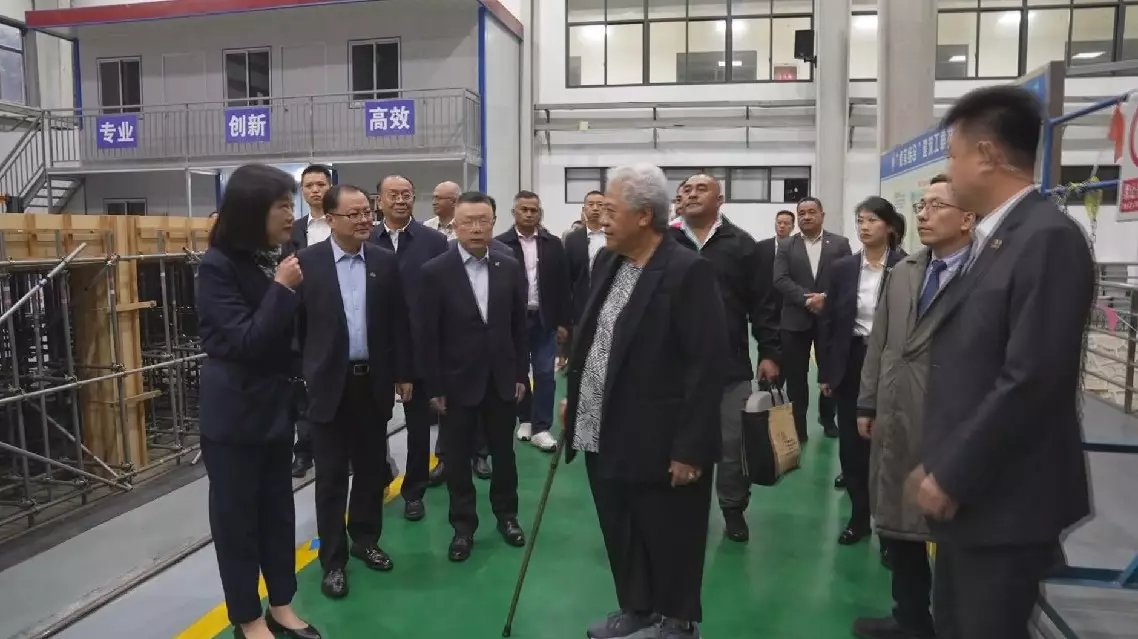
Samoan PM commends China's efficient governance for boosting rapid progress in transformative areas
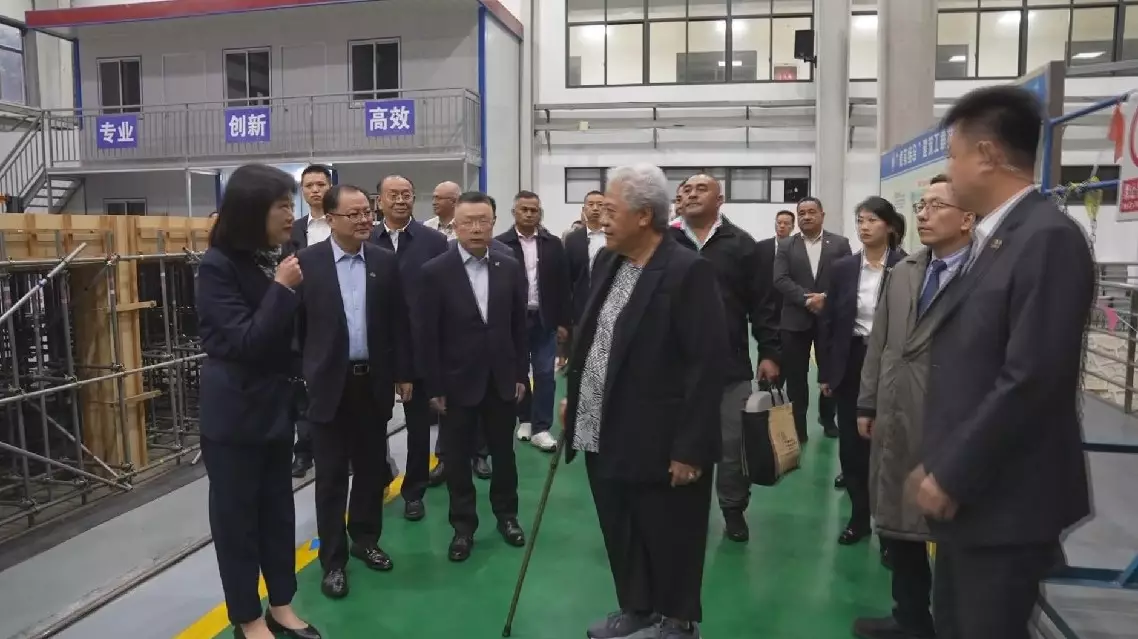
Samoan PM commends China's efficient governance for boosting rapid progress in transformative areas





